On January 8, Evan Lutz, co-founder and CEO of Hungry Harvest, took his company to a television show hoping to secure an investment from one of the most influential businesspeople in the world, and more importantly, spread his message of social entrepreneurship.
Hungry Harvest, a company that was born at the University of Maryland during Lutz’s time as a Terp, aims to use one problem to solve another: the waste of surplus produce to help the hungry. The company purchases surplus “ugly” produce — fruits and vegetables that don’t meet the rigid aesthetic demands of supermarket produce sections, yet are just as nutritious and edible as their box store counterparts — and sells them in bundles at affordable prices to less-fortunate individuals and families.
In the Tank, Evan secured a $100,000 investment from tech mogul Robert Herjavec in exchange for a 10 percent equity stake in Hungry Harvest. The company is looking forward to learning from Herjavec and continuing to grow and spread its mission, with a hopeful eye on Philadelphia as the first expansion city.
Evan sat down with Spoon UMD to share the story of Hungry Harvest’s growth from the steps of the Stamp Student Union to the screen and the wild journey on one of TV’s most popular and life-changing shows, Shark Tank.
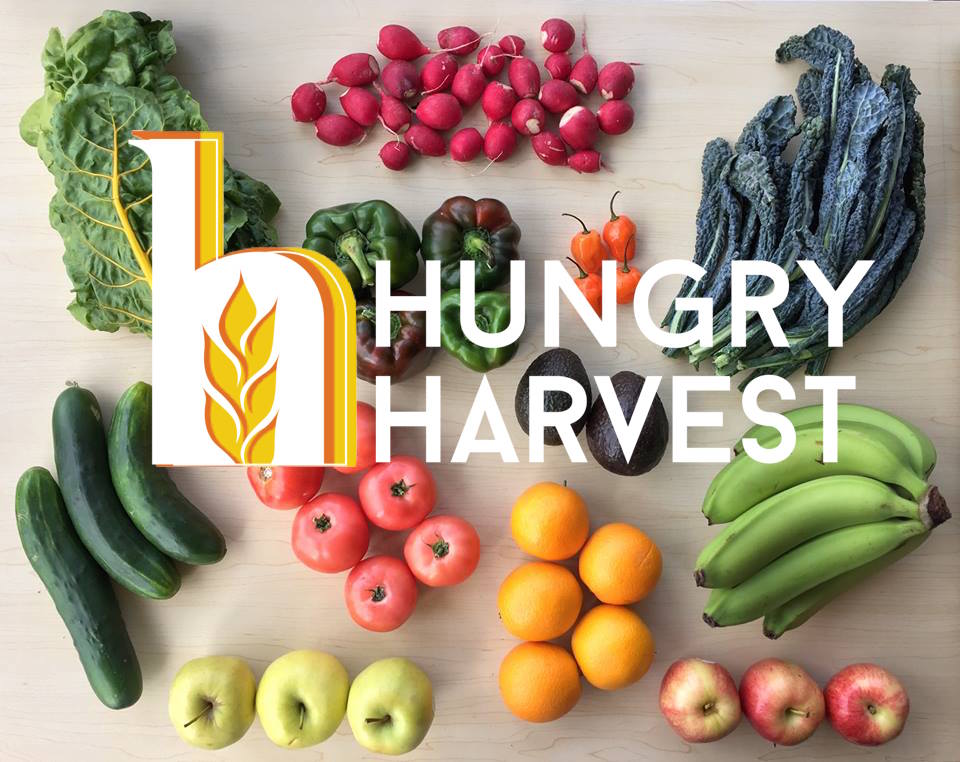
Photo courtesy of hungryharvest.net
Spoon UMD: How did Hungry Harvest start?
Evan: I’ve always wanted to become an entrepreneur my entire life, and not just start a business that made money, but also start a company with an impact that really empowered people. My senior year of college, I started working with an organization called the Food Recovery Network. They take leftover dining hall food — pizzas, pasta, stuff like that — and drive it down to soup kitchens and homeless shelters in the area so that it can be redistributed and not go to waste.
I worked with them for the year, and then the executive director and I came up with an idea for a recovered food CSA (Community Supported Agriculture). We sold surplus fruits and vegetables in front of our Stamp Student Union at the University of Maryland, just five pounds for $5.
The first week we had 20 customers that come up, then the next week 40, then by the end of several weeks we had [400 to 500] people coming and buying from us every week. At that point, we realized that this could actually work, so we turned it into a for-profit enterprise called Hungry Harvest.
What we do today is we use the same model, selling surplus or “ugly” fruits and vegetables that would normally get thrown away because of their odd size and shape. We hand assemble it into really nice variety boxes, and we deliver it to customers’ doors, once a week, every week, for discounted prices. And for every box we deliver to a customer, we donate a healthy meal to somebody in need.
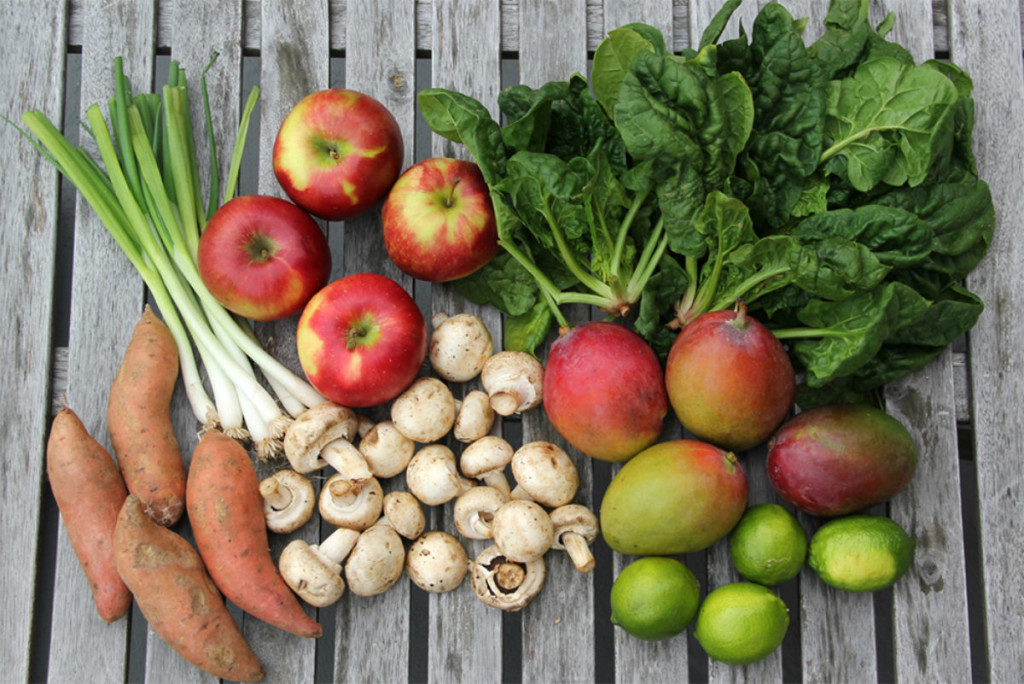
Photo courtesy of hungryharvest.net
Spoon UMD: How did you and your team get the company up and running?
Evan: A lot of hard work and a lot of blood, sweat and tears. It’s been a huge learning curve for us. When we made our first deliveries, we had 30 people we were delivering to, and now we have over 350 deliveries that we are going to make, and an enormous amount more after the airing of Shark Tank.
Spoon UMD: What is the greatest challenge that Hungry Harvest had to overcome in its growth?
Evan: Not knowing anything about the produce market or produce industry. We pretty much learned our way through the produce industry on the job, what works, what doesn’t work, what appeals to consumers.
As a company, our biggest challenge going forward is market education. We have to teach consumers that surplus produce is just as good for you, if not better for you, than the stuff you buy at the grocery store or farmers’ market. Shark Tank is going to help a lot with that.
what happens to your website when you go on @ABCSharkTank #SharkTankEffect pic.twitter.com/eu7BRVDe4b
— Hungry Harvest (@HungryHarvest) January 11, 2016
Spoon UMD: Where does Hungry Harvest get the surplus produce from?
Evan: We source it from local farms and wholesalers. They either have produce that is left over on their farm or surplus in their warehouse that needs to get sold, or we work with different packing plants that sort out produce that doesn’t fit the exact specifications and requirements of grocery store produce. That’s not a reason why produce should go to waste.
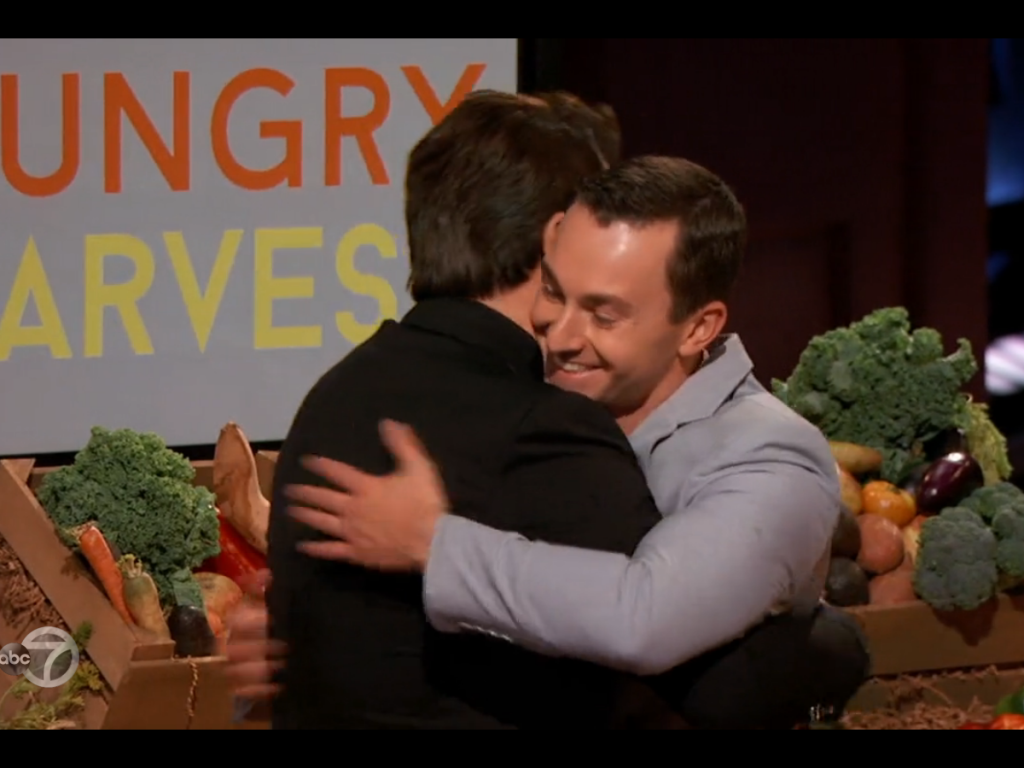
Photo courtesy of businessinsider.com
Spoon UMD: What are your goals for Hungry Harvest in the near future?
Evan: In the next year, we want to recover 800,000 pounds of produce from going to waste in 2016 and donate 250,000 pounds of produce to hungry families in need. We also want to expand to at least one more city in 2016, and we are eyeing Philadelphia.
Spoon UMD: What was the process like to get on Shark Tank?
Evan: It’s been about a yearlong process. They originally reached out to us about last February and told us about the application process. You have to make a 50-page application, produce a video, and there are several rounds. They told us it was highly unlikely that we would get on the show, and so we were debating it for a while.
After debating it, we sat down and decided to do it. We filmed a video in the afternoon and I hand-wrote an application. It’s a handwritten 50-page application! We got accepted to the next round, so I wrote another 50-page application, turned that in, and then we got a call in early June that they were flying us out to LA to film Shark Tank.
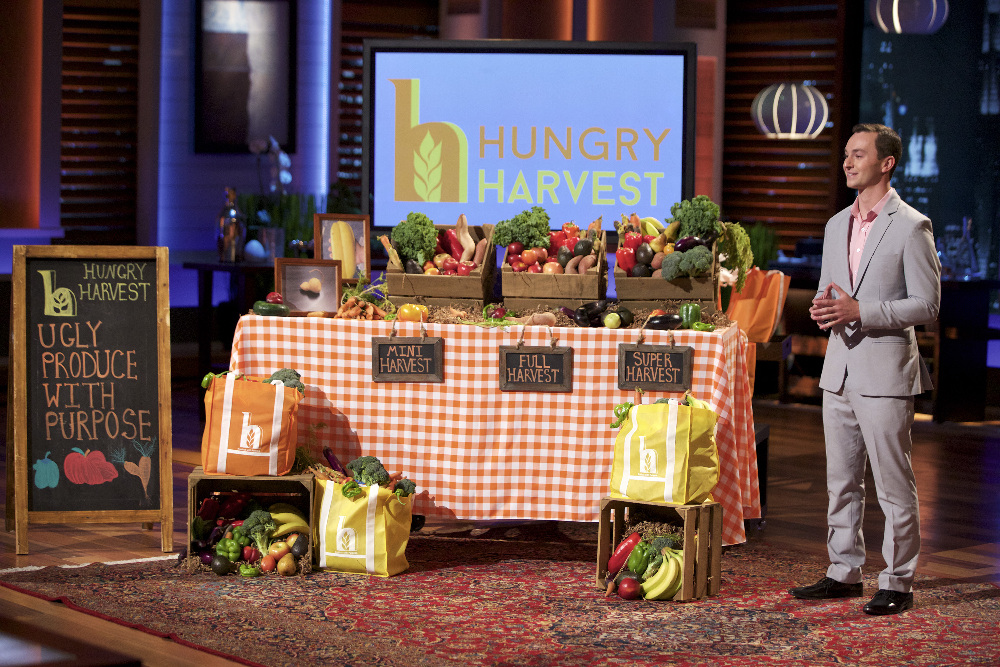
Photo courtesy of hungryharvest.net
Spoon UMD: Tell us about your experience on Shark Tank.
Evan: I do public speaking quite a bit and I do media quite a bit and I talk to investors quite a bit, so I wasn’t ill-prepared for any of that stuff. We also prepared so, so much. I spent 18 hours a day for three weeks just memorizing a sheet of possible questions the Sharks could ask me.
We approached it as an 8-minute commercial in front of 8 million people, and I didn’t want to misspeak; I didn’t want to say a word that doesn’t accurately represent our company; I didn’t want to stutter. You’ve got to memorize every line. And so we prepared rigorously, and I wasn’t that nervous until about five minutes before.
Then they have you stand in front of the doors and there’s a countdown – 10, 9, 8 – and that’s when my heart was beating out of my chest. Then I walked down the hallway, trying to keep a kind of serious face on, but I couldn’t help smiling. They then make you stand in a designated spot and take what they call “beauty shots” prior to the pitch. Then a producer said “And go,” and I started with my pitch.
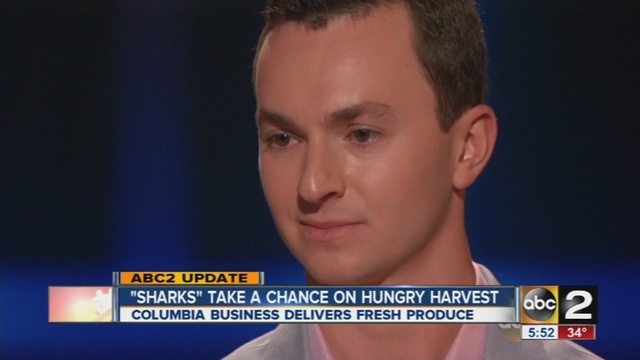
Photo courtesy of abc2news.com
Spoon UMD: What did you take from your Shark Tank experience?
Evan: It was definitely the hardest pitch I’ve ever given. I’ve given pitches to investors a lot, but their questions weren’t as tough as the Sharks’. It was definitely exhilarating. Exhilarating is the best word to describe it. It wasn’t really nerve-racking or demoralizing or empowering, it was just a whirlwind, an exhilarating journey.

